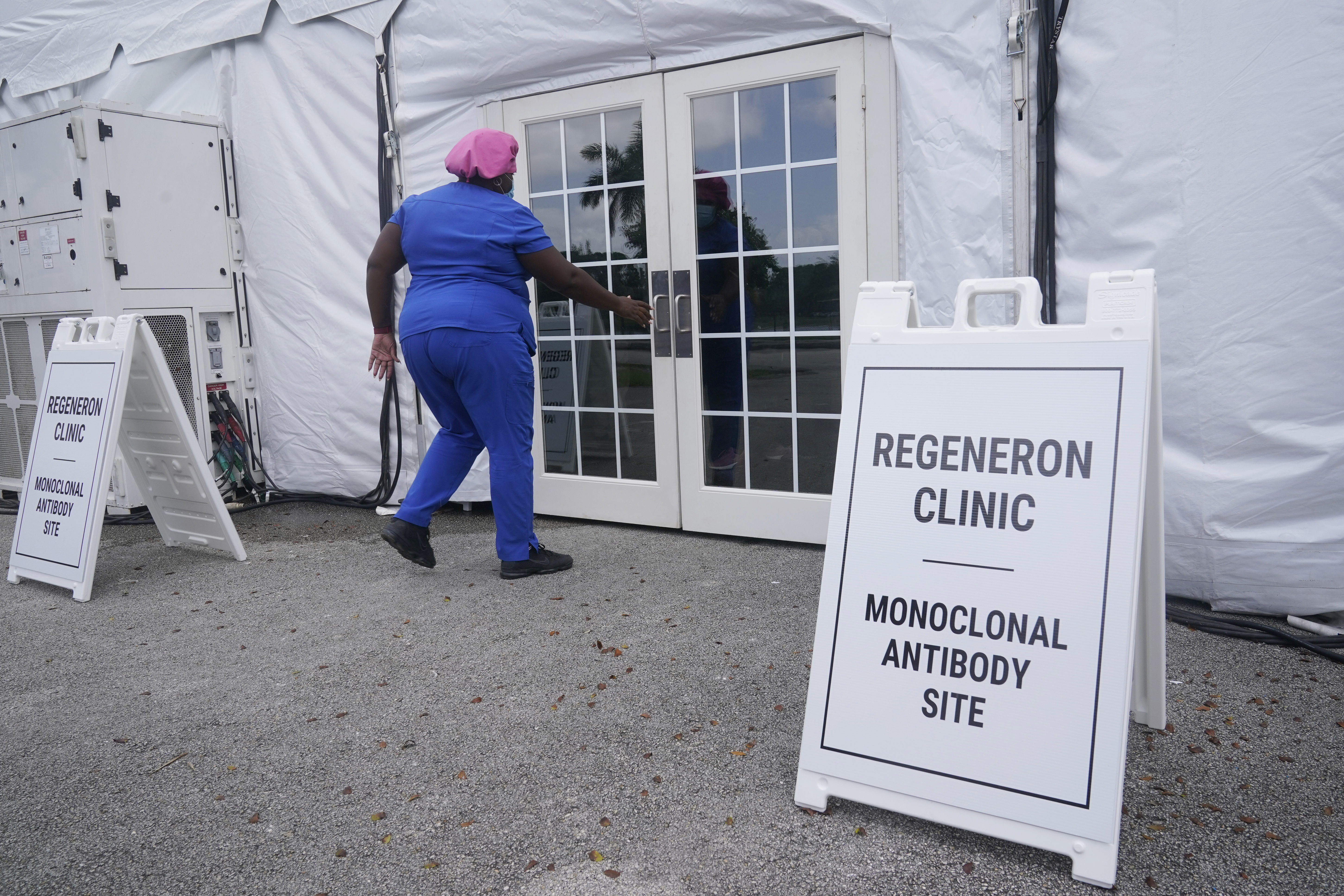(AP) — Newly infected COVID-19 patients have two new treatment options that can be taken at home.
But that convenience comes with a catch: The pills have to be taken as soon as possible once symptoms appear. The challenge is getting tested, getting a prescription and starting the pills in a short window.
U.S. regulators authorized Pfizer’s pill, Paxlovid, and Merck’s molnupiravir last week. In high-risk patients, both were shown to reduce the chances of hospitalization or death from COVID-19, although Pfizer’s was much more effective.
A closer look:
Who should take these pills?
The antiviral pills aren’t for everyone who gets a positive test. The pills are intended for those with mild or moderate COVID-19 who are more likely to become seriously ill. That includes older people and those with other health conditions like heart disease, cancer or diabetes that make them more vulnerable. Both pills were OK’d for adults while Paxlovid is authorized for children ages 12 and older.
Who SHOULDN’T take these pills?
Merck’s molnupiravir is not authorized for children because it might interfere with bone growth. It also isn’t recommended for pregnant women because of the potential for birth defects.
Pfizer’s pill isn’t recommended for patients with severe kidney or liver problems. It also may not be the best option for some because it may interact with other prescriptions a patient is taking.
The antiviral pills aren’t authorized for people hospitalized with COVID-19.
What’s the treatment window?
The pills have to be started as soon as possible, within five days of the start of symptoms. Cough, headache, fever, the loss of taste or smell and muscle and body aches are among the more common signs. The Centers for Disease Control and Prevention offers a website to check your symptoms.
Dr. Cameron Wolfe, an infectious disease specialist at Duke University Hospital, advises getting a test as soon as you have symptoms of COVID-19.
“If you wait until you have started to get breathless, you have already to a large extent missed the window where these drugs will be helpful,” Wolfe said.
Where can I get the pills?
You’ll need a prescription first from a doctor or other authorized health worker. The U.S. government is buying the pills from Merck and Pfizer and providing them for free, but supplies will be limited initially. They’ll be shipped to states where they will be available at drugstores, community health centers and other places. Treatment lasts five days.
Some pharmacists may be able to administer a quick COVID-19 test and prescribe the pills all in one visit. They already do this in many states for flu or strep throat.
Will the pills work for the omicron variant?
The pills are expected to be effective against omicron because they don’t target the spike protein where most of the variant’s worrisome mutations reside. The two pills work in different ways to prevent the virus from reproducing.
Are there other options for new COVID-19 patients?
Yes, but they aren’t as easy to use as a pill: They are given by IV or injection, typically at a hospital or clinic. Three drugs provide virus-fighting antibodies, although laboratory testing suggests the two aren’t effective against omicron. British drugmaker GlaxoSmithKline’s antibody drug appears to work, and officials say they are working to increase the U.S. supply.
The only antiviral drug approved in the U.S., remdesivir, is for people hospitalized with COVID-19.






